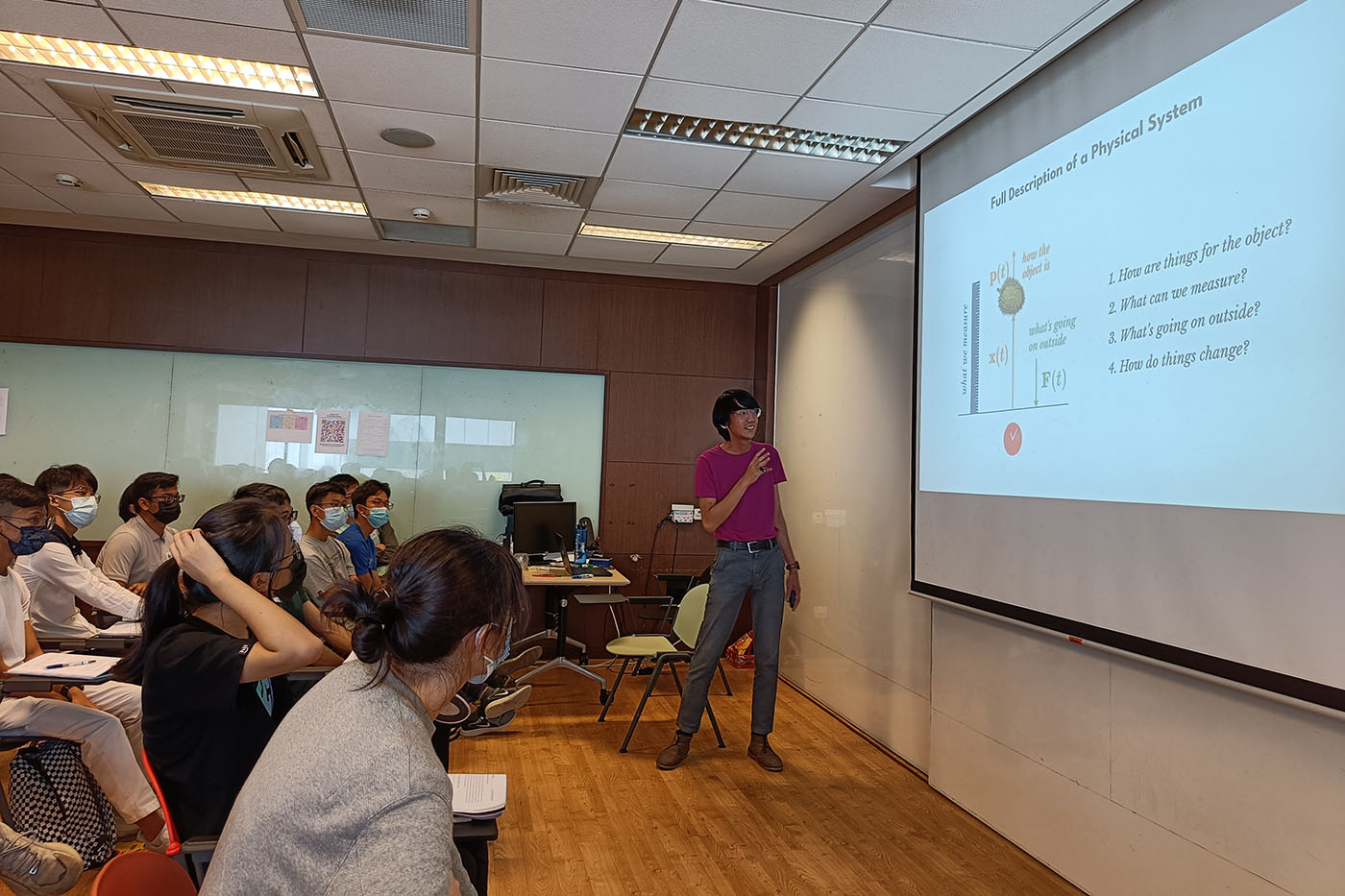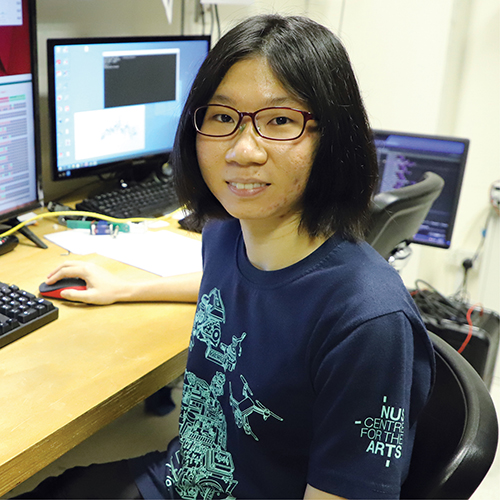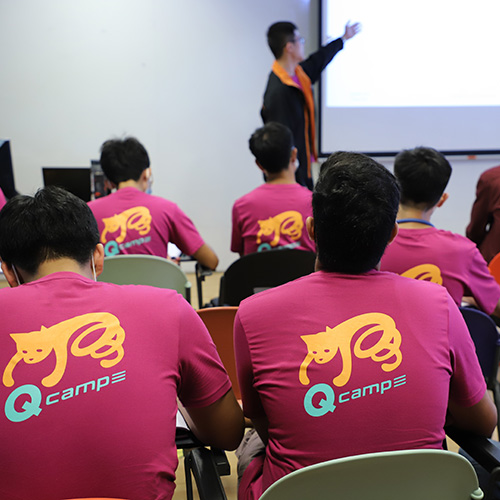Highlights
Meet a CQTian: Zaw Lin Htoo
 Lin giving a lecture on Schrödinger’s Equation during QCamp 2022. As part of the organising committee, he also worked on the QCamp website and design.
Lin giving a lecture on Schrödinger’s Equation during QCamp 2022. As part of the organising committee, he also worked on the QCamp website and design.
Who are you and how did you come to be at CQT?
I’m Lin and I am a PhD student in Valerio Scarani’s group. After finishing my undergraduate studies in physics at the Nanyang Technological University Singapore, it was the height of COVID. I was looking at what to do next and decided to continue my education. I gelled really well with what Valerio’s group was doing and decided to come to CQT. I am a year and a half into my studies now.
What are you working on right now?
I’m working on certifying nonclassicality. As technology gets better, people are able to make bigger and bigger things do quantum things. With better control, eventually, hopefully, we can get quantum objects we can see with our naked eye. The question becomes, how do we know that the object is doing something quantum? When an object is really small, you can do something like tomography, which means that you can exactly reconstruct what the object is doing. When the object is large, that is hard. You have to resort to other criteria. I am working on a particular criterion where by detecting that the object is doing something, we know that it must be quantum because if it is classical, it cannot do that thing.
How did you come to be working on the problem?
A few of us from Valerio’s group went to Trento, Italy, for a workshop in December 2021. Some of us got COVID before our flight back to Singapore, and everyone had to quarantine for two weeks in Trento. During the quarantine, Valerio thought we could work on a simple problem in a paper by Boris Tsirelson on the nonclassical behaviour of a quantum harmonic oscillator. Boris Tsirelson is more famous for what he did in nonlocality called the Tsirelson bound. This 2006 preprint by Tsirelson has been kind of overlooked and was brought to Valerio’s attention by his friend, Miguel Navascués. We eventually realised it was not a simple problem. We have worked on extending what Tsirelson did.
What is your favourite aspect of your research?
Working in theory, it is about trying many different ways to really show a particular result rigorously, for example that something follows from some theory or some equation holds or some analytical form can be found. When you find that, that is the best part. Usually, you have to try ten different things that do not work until you find that one thing that does. It is always fun because it usually comes out of something that you do not really expect.
What interested you in quantum?
There are a lot of quirky characters in the history of physics and you always hear about these people and their ideas. There is also a lot of physics content that has been packaged for a general audience, which I’ve also watched and consumed. Nowadays, looking at films and movies, everyone is interested in quantum. I think these ideas are permeating in society. Having gotten into physics, quantum was something natural for me to get into.
Before university, you studied mass communication at Ngee Ann Polytechnic. What made you switch to physics?
I wanted the experience of undergrad and learning in higher education, even if it is not something I would use later in life. Although the natural choice would have been to continue taking mass communication or something related, I thought improving my skills in mass communication, media and design was something I could do by just going to work immediately. I wanted to do something more academic that only a university, in some sense, can offer. I’ve always had an interest in physics and so pursued it during undergrad.
You were part of the organising committee for QCamp 2022. What was the experience like for you?
QCamp was an opportunity to contribute with the skillset that I have. Studying mass communication in polytechnic, I didn’t shy away from the more technical side of things and specialised in interactive design. Polytechnics are also more industry focused and I had worked on industry projects, which continued as freelance work during my undergrad. With the skills I learnt from those years, I helped to refresh and redesign the QCamp website. It was good that the committee comprised people who are talented and driven in different ways from one another.
Learn more
Related Stories
 | Meet a CQTian: Goh Ka Hui September 01 2022 |
 | CQT hosts QCamp for curious young minds June 23 2022 |






